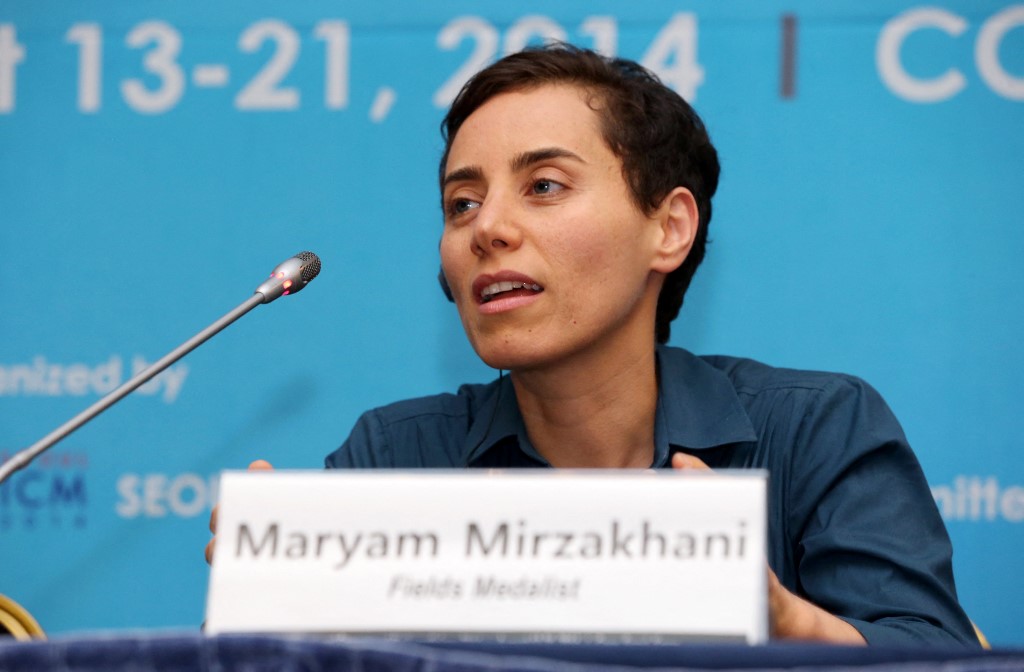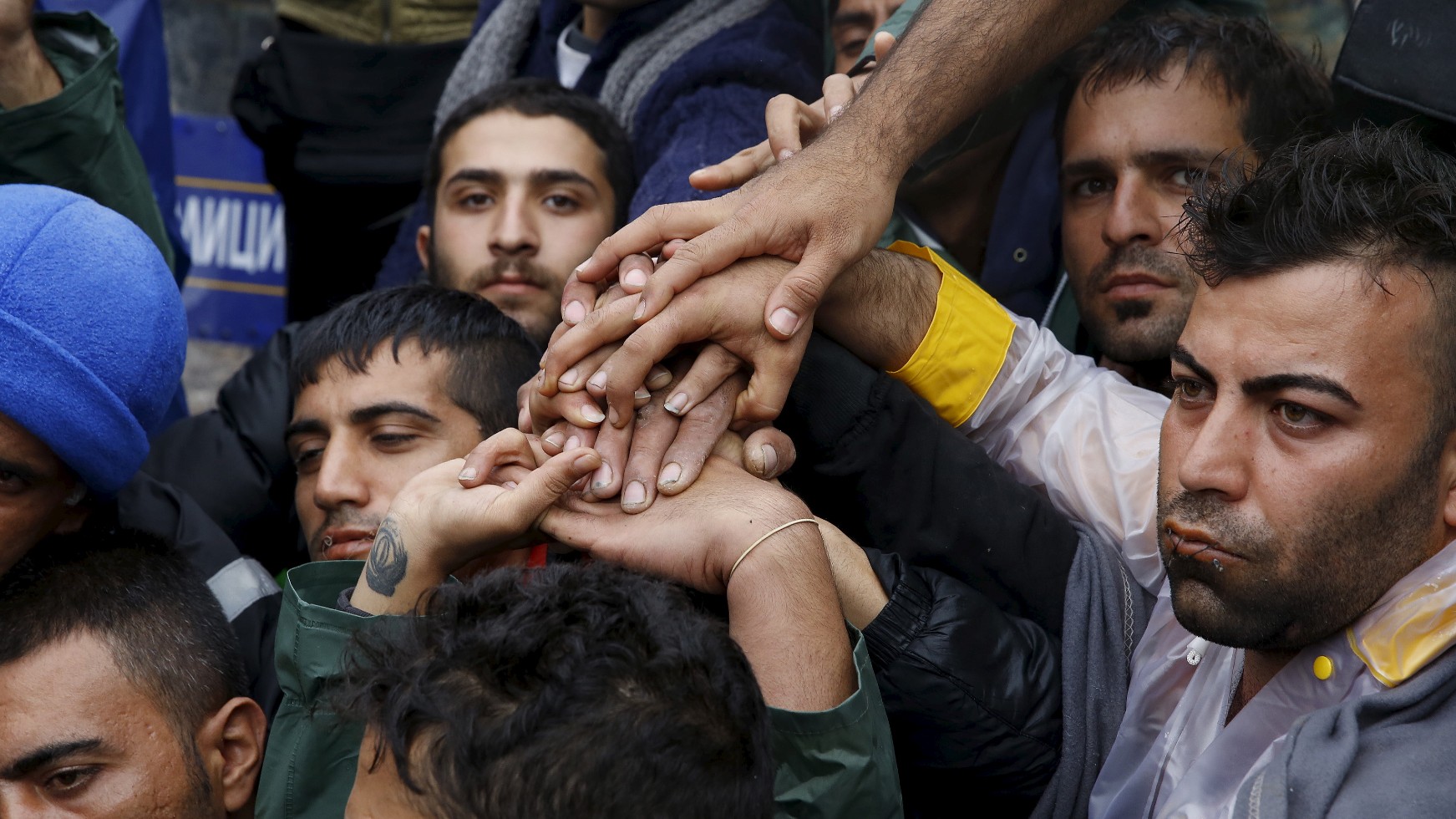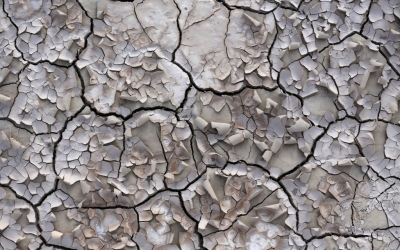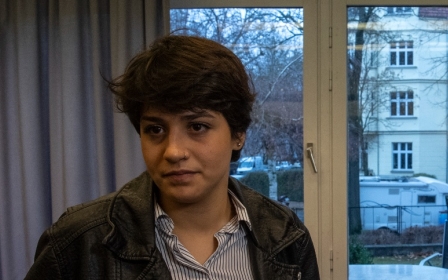Goodbye, genius: How Iran’s best and brightest are leaving the country

Olympians, genius mathematicians, heart doctors. The list is lengthy these days. In the face of crippling sanctions, widespread unemployment and currency devaluation, Iranians are fleeing the country.
It doesn’t take long at family gatherings or business meetings for talk to turn to yet another person who is on their way out - or has already left.
While Tehran’s "brain drain" has been a problem for decades, what’s new now is the sheer number of specialised experts - from engineers to athletes - heading off.
'It's like Iran is being evacuated of geniuses'
- Head of Tehran-based tech start-up
Last month, Abbas Abdi, a prominent reformist figure known for his polling expertise, said the total number of Iranians leaving the country had tripled since 2018, with close to a third taking specialised skills away with them.
Abdi’s findings echoed a call from lawmaker Mostafa Mirsalim earlier this year warning that Iran’s best and brightest were being pushed into “the arms of rivals”.
Perhaps most depressing, Iranians told Middle East Eye, is the sense that to have even an opportunity to achieve the life they want, leaving is now a necessity. All of them spoke on condition of anonymity because of the sensitivity of what they were discussing.
“The situation in the country is getting worse day by day,” Masoud, a graduate from a top Iranian university said by phone from Norway, where he has recently arrived to continue his education. “I am still behind my friends who migrated a few years ago.”
He added: “I was constantly trying to hope for a good future for the country, but there was no room for hope. I finally decided to leave the country by applying for a master's so that I might be able to build a new path for my future.”
'Extinct' expertise
The statistics don't make for good reading.
Forty-three percent of Iran’s Olympic athletes, 30 percent of professors in majors like mechanics and computer science at some universities, and 3,000 physicians have either left Iran or are set to go, according to officials and news reports.
This month, a deputy health minister warned that many provinces are without a single heart surgeon and the expertise is going “extinct” in the country.
The chairman of the Iranian parliament’s health commission wrote a letter, also this month, to Supreme Leader Ayatollah Ali Khamenei, urging him to confront the “irreparable consequences” of fleeing doctors.
In addition to hollowing out hospitals and universities, the outflow of talent has left companies in the lurch, struggling to fill positions, let alone grow their businesses.
A senior executive at a major advertising company in Tehran told MEE that he had searched for two months to find a skilled programmer, with no luck. In the end, he employed someone he had fired three years earlier for lack of skills.
The co-founder of a tech startup in the capital said his sector struggles to compete against foreign companies luring skilled Iranians with salaries paid in dollars.
'Even hundreds of oil wells will not take the place of the people Iran is losing'
- Sociologist and university professor
“After a while, these companies invite them to immigrate and appear in the work office, which leads people with expertise to leave the country,” he said.
He added: “Unfortunately, mechanical and electrical engineers... are easily getting out of our hands because of the country’s situation. This has taken away our power to develop. It's like Iran is being evacuated of geniuses.”
A sociologist and university professor told MEE that Iranians are right to worry about the longterm impact of losing talented workers.
“When people like Maryam Mirzakhani, winner of the Fields Medal, or other experts are attracted to another country, even hundreds of oil wells will not take their place,” he said. A mathematician, Mirzakhani left Iran in the early 2000s to study in the United States. She died in 2017, aged just 40.
“It is difficult for one country to train such people for many years," the sociologist said. "These people may not be repeated in the history of a country.”
Smuggling grows
While many industries struggle to fill jobs, smugglers told MEE their businesses are booming, offering Iranians a quicker and cheaper way out than waiting for visas.
Masoume, who oversees a team of smugglers, said she sends her clients to Turkey legally and then ships them on to a European country.
“If you want to go to Germany, it will cost you 10,000 euros ($11,300) and, if you want to reside in Bulgaria, it requires you to pay us 3,000 euros ($3390),” she said, rattling off a list of her latest figures.
Another smuggler, Soraya, said for 8,000 euros ($9050), she can send people by plane to Canada, also from Turkey.
“We’ve got our people in Istanbul who will take you inside the plane to Canada. And then when you arrive at the Canadian airport, you can seek social refugee status.”
Asked how Canadian authorities would accept Iranians arriving so easily, she claimed that none of her customers has been rejected and deported so far.
The head of a company in Tehran that helps Iranians immigrate legally told MEE that the number of clients willing to leave has skyrocketed in the past few months, especially after the election of hardline cleric Ebrahim Raisi in June.
The most popular destination, he said, is Canada, especially for computer programmers. For $95,000, his company can get a client a visa plus a residency permit.
“If anyone presents Canadian officials with a startup idea, they will get you a visa,” he said. “We offer programmers to be enlisted in the startup, and then we get money in return for letting them join it.”
Many of the physicians who are leaving prefer to go to Oman, the United Arab Emirates and Qatar.
“We get $3,800 and the whole salary of their first month for the physicians who want to immigrate to Dubai,” he said.
As economic conditions continue to deteriorate, some Iranians told MEE they are anxious to leave while they can still afford to go.
Saied, a civil engineer, said after Raisi’s victory, his friends urged him to leave the country. Begrudgingly, he went to Turkey where, he acknowledged, the situation is not much better. He plans to head on to Europe soon.
“I am ready to work in other countries but not in Iran anymore,” he said.
“With these soaring prices, and also no news of a [nuclear] agreement with the West, I think for sure the next year, the prices will increase many times more than today, and it will be even more difficult to flee.”
This article is available in French on Middle East Eye French edition.
Middle East Eye propose une couverture et une analyse indépendantes et incomparables du Moyen-Orient, de l’Afrique du Nord et d’autres régions du monde. Pour en savoir plus sur la reprise de ce contenu et les frais qui s’appliquent, veuillez remplir ce formulaire [en anglais]. Pour en savoir plus sur MEE, cliquez ici [en anglais].







